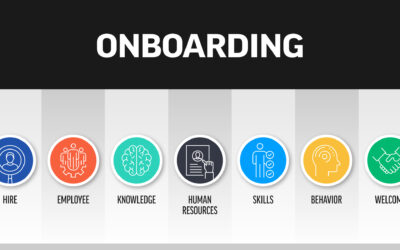We live in an information age, in which colleagues share more of their personal selves in the workplace. Today’s employees want full transparency on all levels. Gone are the days when it was taboo to discuss money, wages, bonuses and pay with your colleagues. However, this cultural shift—in addition to various federal and state laws that protect discussion and disclosure of salary information—has confused some employers.
Compensation is not just the salary or take-home amount an individual brings home each week. Compensation includes salary, bonuses, profit sharing and retirement benefits, medical benefits, and paid time off. An employer should understand the law around the topic of pay, including the following:
The National Labor Relations Act. Salary and wages are working conditions under the National Labor Relations Act, so employees are free to discuss them with each other—and confidentiality provisions or agreements regarding this topic may not be enforceable. Worse yet, trying to enforce these provisions and agreements could land an employer in trouble with the National Labor Relations Board, which enforces the NLRA.
Salary history bans. Employers in various major markets around the country are prohibited from inquiring about a potential employee’s previous salary. This means that when interviewing potential candidates—and during the hiring process—employees should not be asked to disclose prior salary. Some states that restrict inquiries into prior pay include: California, Colorado, Connecticut, Illinois, New Jersey, New York and Vermont. These laws have been put in place to help combat the fact that women and minorities historically have been paid less than men for the same or similar work.
The Equal Pay Act. The Equal Pay Act is an amendment to the Fair Labor Standards Act. Companies covered by the FLSA also are covered by the EPA. The law requires that employees be paid equal wages regardless of gender. Several states also have enacted their own broader laws that apply to those employees working in their states. To comply with the EPA, it is important that employers have clear job descriptions for each role within the company and that they have business need-based reasoned compensation for each position within the company. These pay differentials can be based in various business reasons such as seniority basis, merit basis, quantity or quality of production basis, or any factor other than sex. It is the responsibility of the employer to show that the reason for a pay differential is business and not gender based.
Often, this is called salary banding. The Equal Pay Act, and state equivalents, require that employees be paid equal wages for equal work. Therefore, it is a good practice for companies to review their salary bands at least once a year.
Employees are making comparisons
Employers should expect that their employees are discussing pay, researching pay, and getting as much information as they can from companies like Glassdoor, Salary.com and PayScale. It is best to have solid compensation strategies and plans in place for every role. It also is important to keep lines of communication with employees open so that discussions about development are part of the plan and managers are not caught unaware for promotion or salary increase requests.
Managers should be able to respond to requests regarding an individual’s salary or requests for increases with performance and business neutral facts (e.g., performance on a challenging project leading to future promotions, or increases based on certain position milestones). Often, experience can be a differentiator, too. When having these conversations, managers should listen intently and be careful not to make promises upon which they cannot deliver. Increases should not only be given because someone asked, but they should be reviewed based on performance and other factors for all individuals on the team.
The hybrid workforce
Today, many businesses are working remotely or have a hybrid plan in place. Managers must be mindful not to treat individuals who are working remotely differently than those employees in the office. All employees should be offered similar opportunities to interact with management and the chance to work on different projects regardless of whether they are in-person or working remotely.
Regular check-ins with all employees are important and managers should focus on employee engagement regardless of which work method they select. In hybrid workplaces, departments may choose to have a set in-person day so that there can be more collaboration and interaction.
Maintaining open communication with your team and regularly reviewing pay against market conditions and with compliance in mind is a beneficial practice so that management is prepared for any salary conversations that may arise. Managers should expect that salary is being discussed everywhere, on job boards, in networking groups and amongst colleagues. They should be prepared with the data to support their decisions.

Vanessa Matsis-McCready
Vanessa Matsis-McCready directs the Engage PEO HR Consultant team, advises internal teams on a wide range of HR compliance matters, and works closely with Engage clients across industries to help them navigate employment law issues. Joining the Engage team in 2014, she supported Engage clients—primarily in the Northeast—on a variety of complex HR and employment issues. Prior to joining Engage, Matsis-McCready was an employee relations manager at a unionized public utility where she managed employee and labor relations issues for more than 500 employees. She also previously handled HR compliance issues for Time Inc.; was an associate at the law firm Kaye Scholer LLP; and served as a law clerk at Kane Kessler P.C., where she supported the Labor and Employment group with a focus on unionized hospitality clients.






